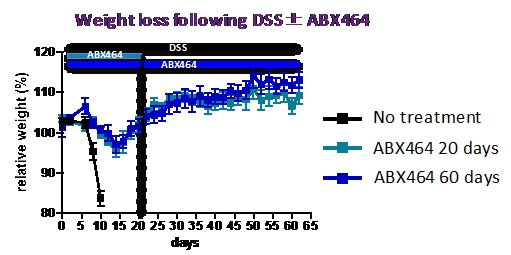
Jamal Tazi
University of Montpellier, France
Title: The anti-hiv candidate abx464 dampens intestinal inflammation by triggering il22 production in activated macrophages
Biography
Biography: Jamal Tazi
Abstract
The progression of human immunodeficiency virus (HIV) is associated with mucosal damage in the gastrointestinal (GI) tract. This damage enables bacterial translocation from the gut and leads to subsequent inflammation. Dextran sulfate sodium (DSS-treatment) is an established animal model for experimental colitis that was recently shown to recapitulate the link between GI-tract damage and pathogenic features of SIV infection. The current study tested the protective properties of ABX464, a first-in-class anti-HIV drug candidate that has demonstrated anti-viral activity in HIV treatment of naïve patients. ABX464 also induced a long-lasting control of the viral load in HIV infected humanized mice after treatment arrest. ABX464 treatment strongly attenuated DSS-induced colitis in mice and produced a long-term protection against prolonged DSS-exposure after drug cessation. Consistently, ABX464 reduced the colonic production of the inflammatory cytokines IL-6 and TNFï¡ as well as that of the chemoattractant MCP-1. However, RNA profiling analysis revealed the capacity of ABX464 to induce the expression of IL-22, a cytokine involved in colitis tissue repair both in DSS-treated mice. A comprehensive analysis of the gene expression profiles by RNAseq demonstrated that the expression of IL22 was preferentially induced by ABX464 in mouse bone marrow derived macrophages only upon stimulation with LPS. Importantly, anti-IL22 antibodies abrogated the protective effect of ABX464 on colitis in DSS-treated mice.
Because reduced IL-22 production in the gut mucosa is an established factor of HIV and DSS-induced immunopathogenesis, our data suggest that the anti-inflammatory properties of ABX464 warrant exploration in both HIV and inflammatory ulcerative colitis (UC) disease.


